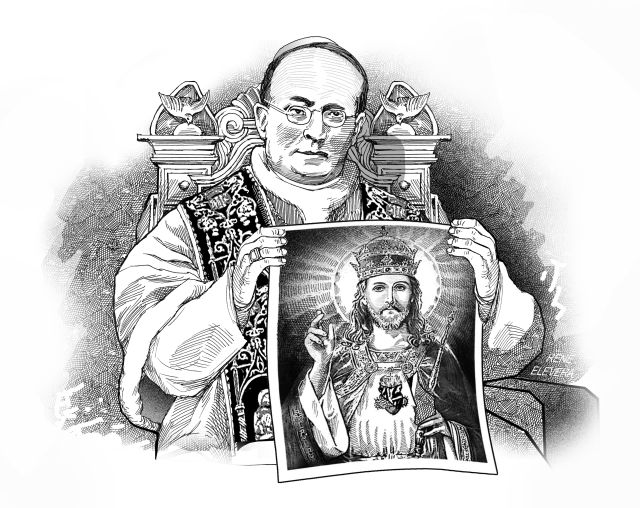
The Museo del Prado in Madrid houses “The Garden of Earthly Delights,” a triptych done in oil on oak by the 16th century Dutch painter, Hieronymus Bosch. The work has drawn many diverse interpretations, especially the central panel, described by an American writer as displaying an “erotic derangement that turns us all into voyeurs.”
The outer panels depict the greenery that began to clothe the still unspoiled and unpopulated earth at the beginning of creation. These open to the triptych, whose left panel shows a prelapsarian landscape, Eden before the Fall of Man, in which God hands Eve over to Adam in the presence of rabbits, which suggest fecundity. In the background we see a giraffe, an elephant and a lion about to devour its prey. In the foreground, birds and winged animals come out of a hole.
The center panel portrays the garden, which gives the triptych its name. Here we find male and female nudes mingling with real and exotic creatures and oversized fruit. The people engage themselves as couples or in groups in various types of erotic activity, disposing an art historian to describe them as behaving “overtly and without shame.” It is a surrealistic landscape (in this Bosch antecedes Dali by 500 years)—huge ducks play with minuscule folk under a gigantic fruit, fish stroll on land, birds dwell in water, an amniotic fluid bubble encases an amorous couple, a man inside a red fruit gazes at a mouse in a see-through cylinder.
The looseness of reality and morals indicates a world without God, a secular world in which the senses are indulged, which John Lennon envisions in his song, “Imagine.” In such a world, as Dostoevsky puts it, “all things are permitted.”
On the right panel, Bosh, a Catholic who belonged to a conservative religious group, the Illustrious Brotherhood of Our Blessed Lady, shows us the consequences of living in the Garden of Earthly Desires—a bizarre and terrifying portrayal of hell, into which the humans who have yielded to the yearnings of the flesh, the allurements of the world and the temptations of the devil, find themselves thrown. Night suffuses the ghastly scene—burning cities, war, torture chambers, hellish taverns, demons and mutants eating human flesh.
We have seen in our time that the secular dream of turning the earth into a Garden of Earthly Delights, without need of faith, the hope of an afterlife and a charity that redeems suffering, can only fail. As Pope Pius XI put it—“Since the close of the Great War, individuals, the different classes of society, the nations of the earth, have not as yet found true peace…” True peace, he said, can only be found under the Kingship of Christ, the “Prince of Peace”—“For Jesus Christ reigns over the minds of individuals by His teachings, in their hearts by His love, in each one’s life by the living according to His law and the imitating of His example.”
Hence, in 1925, Pope Piux XI instituted the feast of Christ the King to stress that Christians owe their allegiance to their spiritual rather than their earthly rulers.
It is a misunderstood kingship. Luke writes that, when Jesus was hanging on the cross, the rulers, meanwhile, sneered at him and said, “He saved others, let him save himself if he is the chosen one, the Messiah of God.” Even the soldiers jeered at him. As they approached to offer him wine they called out, “If you are King of the Jews, save yourself.” Above him there was an inscription that read, “This is the King of the Jews.”
And even one of the criminals hanging there reviled Jesus, saying, “Are you not the Messiah? Save yourself and us.” The other, Luke writes, rebuked him, “Have you no fear of God, for you are subject to the same condemnation? And indeed, we have been condemned justly, for the sentence we received corresponds to our crimes, but this man has done nothing criminal.” Then he said, “Jesus, remember me when you come into your kingdom.” And Jesus replied, “Amen, I say to you, today you will be with me in Paradise.”
The rulers and soldiers and the criminal who jeered at Jesus found his claim of kingship ridiculous because they equated being king with having human power, whereas the basis of Christ’s kingship, according to Pope Benedict XVI, is love and service.
People who misconstrue the kingdom of God are bound to conceive heaven as no more than a Garden of Earthly Delights. They might think that death puts an end to everything. It does not. It merely moves them to the next stage depicted in Hieronymus Bosch’s right panel, the horrors of an unending season in hell.